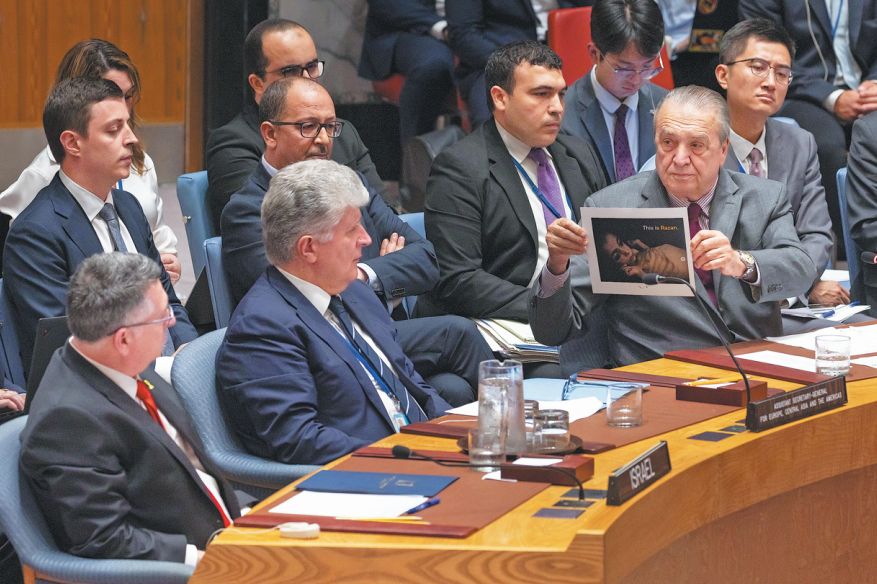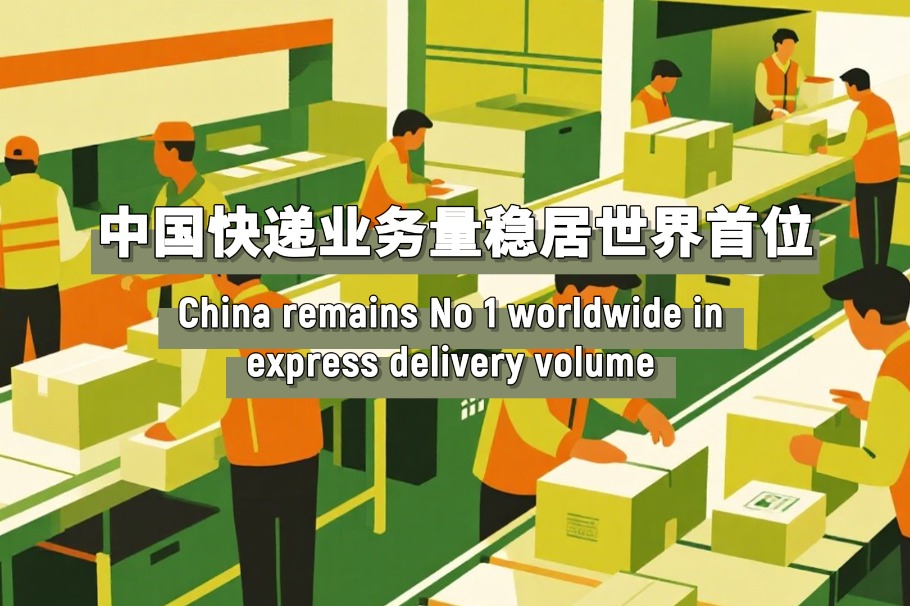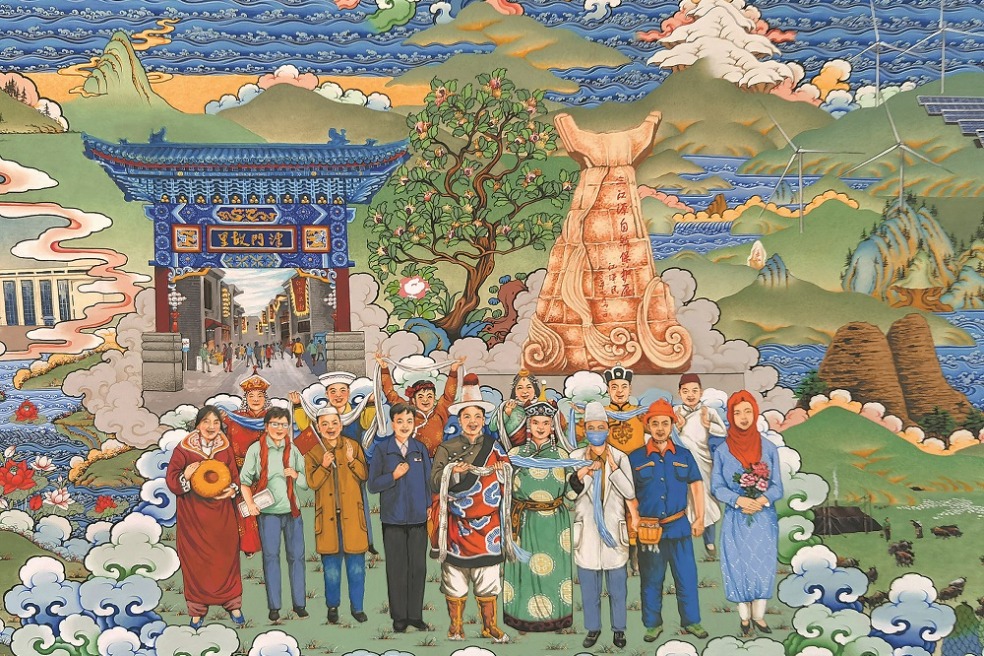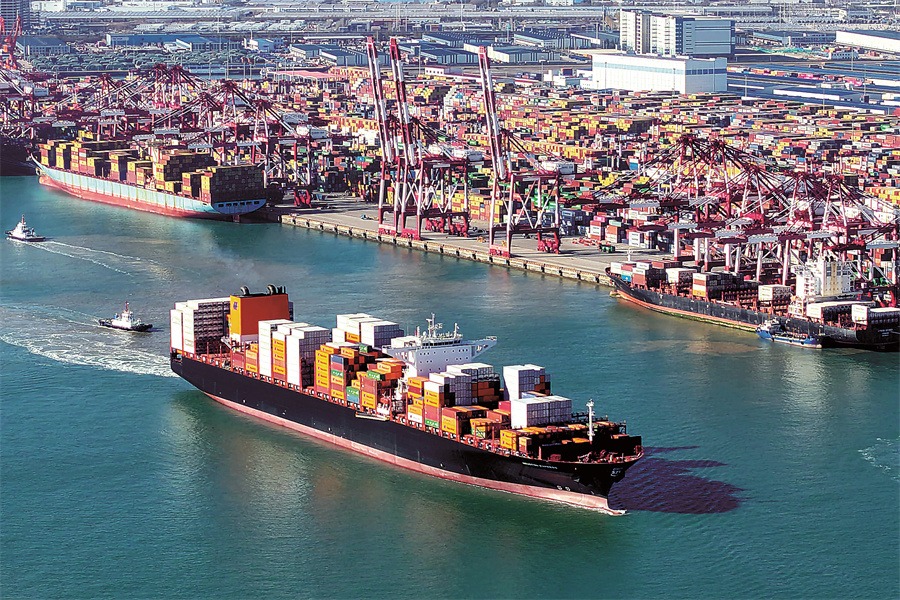Friction without fallout?


China and the EU face the challenge of managing their growing economic conflicts without unraveling the interdependence of their mutually beneficial partnership
This year marks the 50th anniversary of the establishment of diplomatic relations between China and the European Union. The relationship is built on mutual benefit and growing interdependence. But now, it is strained by rising strategic uncertainty and ambivalence. For decades, trade and economic cooperation served as the ballast holding this long-distance partnership steady. And for a long time, it worked. From merely $2.4 billion in 1975 to $785.8 billion in 2024, bilateral trade has expanded more than 300-fold, making both China and the EU prominent, if not dominant, players in the global economy.
Economic interdependence, which has flourished on the back of the China-Europe Railway Express, is firmly on the rise. Europe has come to depend on China for key inputs, including batteries, rare earths and intermediate goods, while China has sought European technology, expertise in green energy and access to high-end consumer markets. The logic seemed straightforward: complementarity will keep the partnership resilient, even as political tensions occasionally flared.
That logic, however, is under strain. The global landscape is shifting, and with it, the terms of China-EU economic engagement. In recent years, Brussels has begun to question the long-term sustainability of deep integration with what it calls both an "economic competitor" and a "systemic rival". The EU's current strategy favors "de-risking", a term that, while vague and inventive, reflects growing unease and anxiety. Of course, the stated objective is not full decoupling, but the policy measures suggest a more ambitious re-calibration: tighter investment screening, stricter subsidy and anti-dumping investigations, and efforts to diversify supply chains away from China through the "China+1" formula.
What complicates this shift is not just internal political pressure within Europe, but its growing alignment with the United States. EU officials have increasingly echoed Washington's rhetoric and regulatory agenda — a shift that is as strategic as it is economic. Transatlantic coordination on critical minerals, supply chains and export controls may be framed as technical cooperation, but it sends a bigger and shocking message. It signals the EU's growing willingness to be drawn — deliberately or not — into Washington's wider geopolitical playbook. The more Brussels aligns itself with the US, the harder it becomes to maintain the kind of autonomous, economically grounded, and mutually beneficial engagement with China that defined the past five decades.
From China's perspective, this shift is revealing. It strengthens the view that Europe's "de-risking" is not just risk management, but a geopolitically driven attempt to restructure supply chains and marginalize China in the world economy. What the EU presents as caution, China sees as strategic disengagement in softer and gradual terms. As a result, China is adjusting its own approach. Chinese companies are accelerating localization efforts, reviewing their exposure to the EU market, and focusing more on ties with individual member states that remain open to cooperation.
The real challenge, however, is political rather than technical. The EU is not a unified actor on China — and that fragmentation is becoming harder to ignore. The recent debate over tariffs on Chinese electric vehicles makes the point clear: 10 member states supported the measure, five opposed, and 12 abstained. That's not consensus — it's differences of opinion. Germany and Hungary, in particular, resisted confrontation, concerned about economic blowback and long-term access to Chinese markets. Others, more hawkish, backed the tariffs on both economic and strategic grounds.
This division reflects a deeper tension: the EU's China policy is increasingly torn between strategic caution and economic dependence. Some countries see opportunities in Chinese investment and industrial cooperation. Others fear becoming too dependent. Many fall somewhere in between — concerned about China's intentions but unwilling to cut ties that support jobs and growth at home.
Beijing no longer expects a unified policy from Brussels. Instead, it has adopted a more flexible approach — deepening relations with individual member states that are more open to engagement, presenting itself as a long-term economic and development partner, and stressing dialogue over confrontation. This is not a retreat, but a strategy shift. China understands that while the EU speaks of "strategic autonomy", its policies often reflect internal divisions and a strong tilt toward the US.
Both China and the EU are navigating a world marked by growing rivalry among major powers, disrupted supply chains and rising geopolitical uncertainty. Neither side wants open confrontation. Both understand the risks. But both are under pressure — from Washington, from the business sector and from public opinion — to adapt and hedge their bets.
As China and the EU celebrate 50 years of diplomatic relations, the mood is more cautious than festive. The relationship isn't breaking down, but it is changing. There's no appetite for a full break, but also no expectation that things will carry on as before. What lies ahead is a slow, deliberate adjustment — and a tough balancing act between economic interests and strategic concerns.
Even so, there is still meaningful room for cooperation. The green transition, digital regulation, infrastructure development and climate goals such as carbon neutrality are not just shared ideals — they are urgent needs. These are areas where China and the EU can complement each other. Working together in these fields isn't wishful thinking — it's a smart and necessary choice.
This may be what defines the next phase of China-EU economic ties — not a return to the hopeful era of the early 2000s, but a more cautious, managed coexistence based on shared and self-interested goals. The alternative — deepening tensions, trade barriers and growing mistrust — would be far more damaging. With good political judgment and steady leadership, both sides can still find a way to balance competition with cooperation. The breaking of relations is not an inevitability.
But this will require hard choices in Brussels. The EU cannot simultaneously expand trade with China and fully adopt US-led frameworks that limit that space. While stronger ties with Washington may offer short-term bargaining power, they reduce Europe's room to develop its own trade strategy with Beijing.
Fifty years on, the China-EU relationship stands at a turning point. Its foundations remain solid, even if the path forward is uncertain. In a world increasingly shaped by division and rivalry, what this relationship becomes — and what it avoids becoming — will help define the broader global order. If China and Europe can manage their differences without losing sight of what they have in common, they won't just preserve a valuable partnership — they will help preserve a measure of stability in a world that badly needs it.
Ji Xianbai is a research fellow at the National Academy of Development and Strategies and a senior fellow at the School of Global and Area Studies at Renmin University of China. Ge Xinping is a research assistant at the School of Global and Area Studies at Renmin University of China. The authors contributed this article to China Watch, a think tank powered by China Daily. The views do not necessarily reflect those of China Daily.
Contact the editor at editor@chinawatch.cn.


































